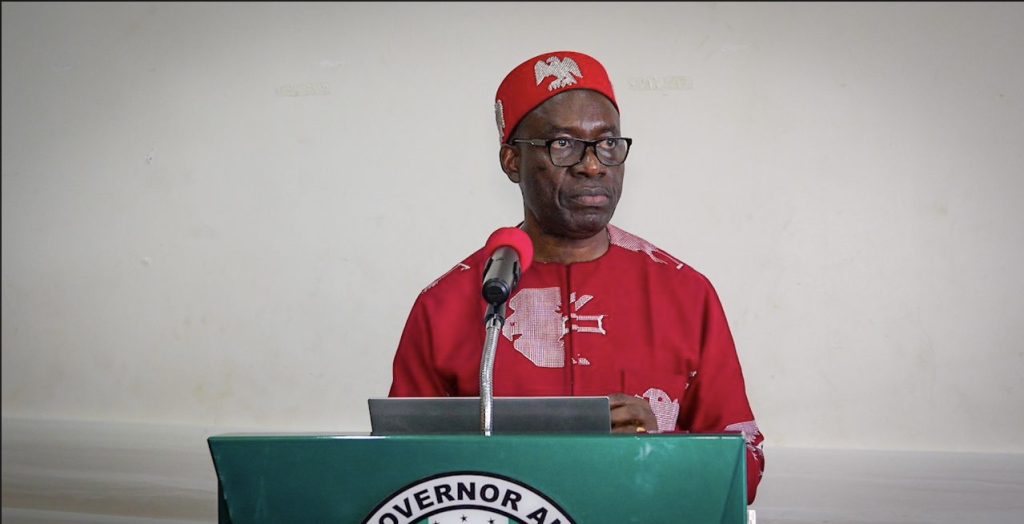Governor Chukwuma Soludo of Anambra State has vehemently criticized politicians who pledge to serve only a single term in office, dismissing such pronouncements as illogical and suggesting that those making them should undergo psychiatric evaluation. Soludo’s remarks, made during a political rally in support of his own second-term bid, centered on the argument that Nigeria’s constitution allows for two terms, and therefore, limiting oneself to one term is a rejection of the established legal framework. He questioned the rationale behind such promises, suggesting they are made to deceive the electorate and demonstrate a lack of seriousness about the responsibilities of public office. This stance reveals a fundamental disagreement about the purpose and potential of single-term governance, highlighting a broader debate within Nigerian politics about leadership, accountability, and the optimal length of political mandates.
Soludo’s critique emerges amidst a backdrop of increasing discussion about the merits and demerits of single-term limits. Proponents of single-term limits often argue that they minimize the potential for power consolidation, reduce the incentives for corruption fueled by re-election campaigns, and encourage officeholders to focus on long-term policy goals rather than short-term political maneuvering. By eliminating the pressure to seek re-election, the argument goes, leaders are freed to make unpopular but necessary decisions, thereby serving the broader interests of the public rather than partisan considerations.
Conversely, opponents of single-term limits, like Soludo, contend that such restrictions deprive voters of the right to retain effective leaders and can lead to instability and a lack of continuity in governance. They argue that the possibility of re-election provides a powerful incentive for good performance and accountability, as leaders are motivated to demonstrate tangible results to earn the public’s continued support. Furthermore, they suggest that artificially limiting experienced and successful leaders to a single term can result in a loss of valuable expertise and institutional knowledge, hindering progress and potentially jeopardizing crucial long-term projects.
Soludo’s remarks are particularly relevant in light of recent pronouncements by other notable political figures. Governor Seyi Makinde of Oyo State has advocated for a single, six-year term, arguing that it would provide sufficient time to implement significant changes while mitigating the distractions and potential corruption associated with re-election bids. Former Labour Party presidential candidate Peter Obi has also expressed openness to a single-term presidency, framing it as a gesture towards equity, zoning, and demonstrating the possibility of effective governance within a limited timeframe. These differing perspectives underscore the complex and evolving debate surrounding term limits in Nigerian politics, and the varying motivations and rationales underpinning each position.
The debate over single-term limits encapsulates a broader discussion about the nature of political leadership in Nigeria. It raises questions about the balance between accountability and continuity, the influence of political ambition on policy decisions, and the optimal mechanisms for ensuring good governance. Proponents of single-term limits often emphasize the need to curb the potential for power abuses and corruption, while opponents underscore the importance of experience, stability, and the right of the electorate to choose their leaders for multiple terms based on performance. This ongoing dialogue reflects the ongoing evolution of democratic principles and practices in Nigeria, as the nation grapples with the complexities of building strong and effective institutions.
Ultimately, the question of whether single-term limits are beneficial or detrimental to Nigeria’s political landscape remains a matter of ongoing debate and analysis. The arguments on both sides are compelling, and the optimal approach likely depends on a variety of factors, including the specific political context, the strength of existing institutions, and the broader societal values and priorities. As the discussion continues, it is essential to consider the potential benefits and drawbacks of each approach, and to strive for solutions that promote good governance, accountability, and the long-term well-being of the Nigerian people. Soludo’s strong critique of single-term pledges adds another layer to this complex discussion, prompting further reflection on the ideal structure of political leadership and the most effective means of ensuring responsible and effective governance.


